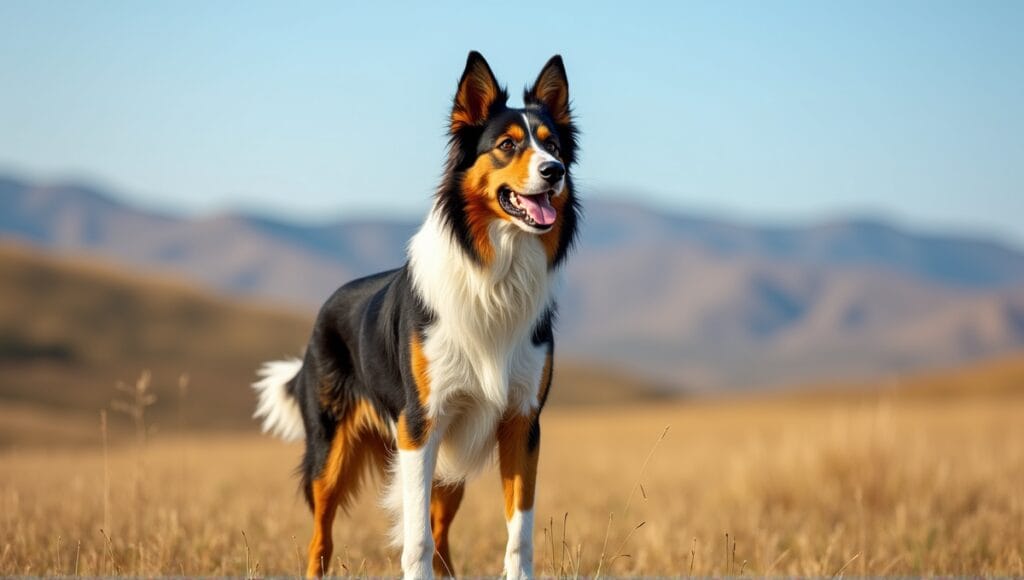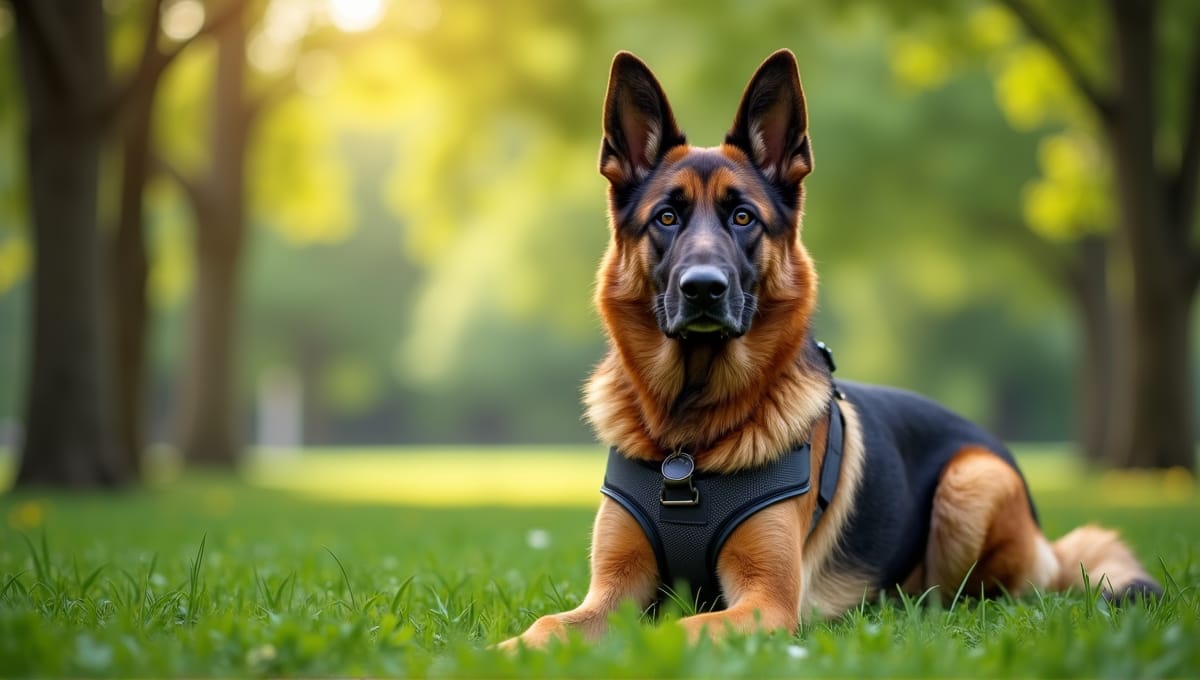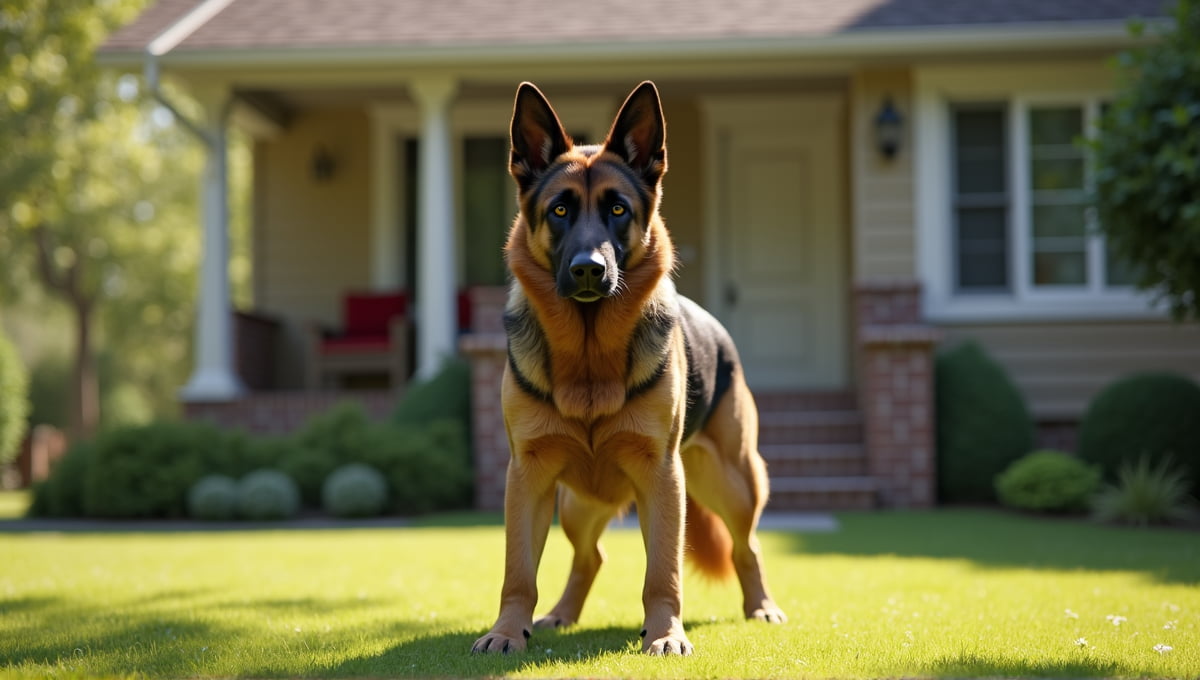As someone who grew up on a farm, I know just how valuable herding dogs can be. These incredibly intelligent dogs have a long-standing history of use in farming and managing livestock. So today, I want to help you determine if a herding breed is a good fit for you. We’ll discuss their characteristics, common breeds, and care needs. You’ll discover that these dogs are ideal for active families who enjoy both mental and physical stimulation.
Understanding Herding Dog Breeds
Herding dogs are a category of dog breeds that were specifically bred to control the movement of livestock. These highly intelligent dogs were instrumental to agriculture and pastoral societies throughout history, as their intelligence and trainability made them valuable assistants to farmers and shepherds.
I’ve trained many herding breeds, and they all have a few key things in common:
- High energy levels
- Strong work ethic
- Intense focus
- Exceptional intelligence
- Loyalty to their handlers
The American Kennel Club recognizes over 30 breeds in its Herding Group, which accounts for approximately 20% of all AKC breeds. That’s a significant percentage, so you’ll find a diverse range of sizes, temperaments, and coat types within the group.
Herding dogs are excellent at controlling the movement of other animals, and they rely on their instincts to gather, herd, and protect livestock. These same instincts allow them to excel in activities today, like agility and obedience. Some herding breeds, like German Shepherds, are also commonly used as police dog breeds.
Popular Herding Dog Breeds
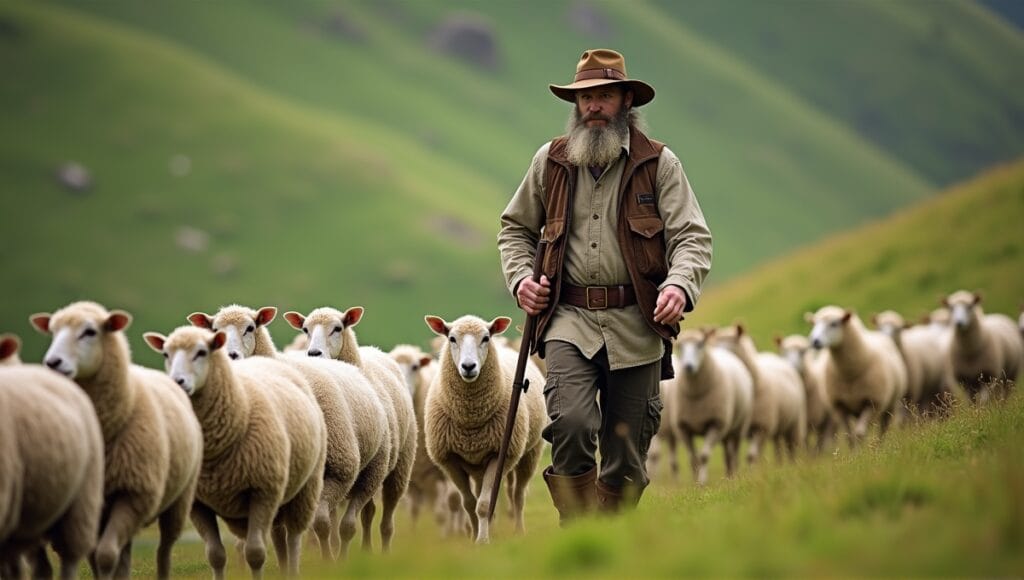
Here are a few of the most popular herding breeds. Most dogs in this category range from 30 to 100 pounds as adults.
Border Collie: Considered by many to be the most intelligent dog breed. Border Collies are known for their intense gaze and unmatched work drive.
Australian Shepherd: A versatile breed with a strong herding instinct. Australian Shepherds are commonly used as working dogs and also make great pets.
German Shepherd: Very loyal and brave. German Shepherds are frequently used in police and military roles.
Shetland Sheepdog: A smaller herding breed that’s admired for its attractive coat and sweet temperament.
Welsh Corgi: There are two variations of the Corgi breed: the Pembroke and the Cardigan. Both are short, long herders known for their big personalities.
Australian Cattle Dog: These dogs are resilient and indefatigable. They were specifically bred to handle the tough Australian outback.
While each of these breeds has its own specific strengths and weaknesses, they all have that underlying herding instinct. It’s mesmerizing to watch them in action!
Intelligence and Trainability of Herding Dogs
Herding breeds are among the most intelligent dogs. In fact, they rank in 7 of the top 10 spots in Dr. Stanley Coren’s research on the most intelligent dogs. Dr. Coren is a well-known canine psychologist.
These dogs can learn a new command in just 5 repetitions. Essentially, their problem solving ability is through the roof. Herding dogs can solve puzzles that would leave most other dogs scratching their heads.
Here are some training tips for herding breeds:
- Train them from a young age.
- Use positive training methods.
- Give them plenty of mental stimulation.
- Be reliable in your training.
- Incorporate their herding instincts into the training itself.
Just keep in mind that herding breeds are working dogs, and accordingly, they need a task. Without proper training and mental stimulation, they will become bored and then destructive.
Exercise Requirements for Herding Dogs
Herding breeds are very high energy dogs, and they require a lot of exercise. Plan for at least 1-2 hours of exercise per day.
While physical activity is essential, mental stimulation is also important. These are intelligent dogs that need to work their minds as much as their bodies. If they don’t get mental stimulation, a herding dog will likely become a problem dog very quickly.
Here are some exercise options for your herding breed:
- Long walks/runs
- Agility
- Frisbee
- Herding balls (large balls they can push)
- Hide and seek
Just ensure that you adapt the exercise according to your dog’s age or physical condition. Puppies and older dogs may not be able to handle certain activities.
Herding Instincts and Working Capabilities
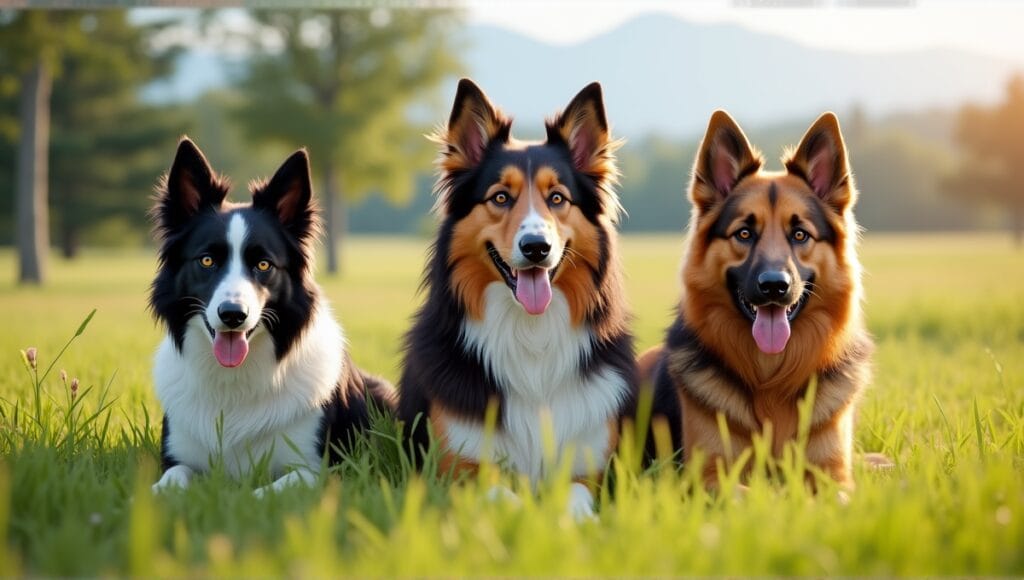
Herding dogs naturally have the instinct to control the movement of other animals – it’s literally in their DNA. Even if a herding dog has never seen a sheep, it will likely still try to herd other pets (or even children) in your household!
Modern jobs for herding dogs are often related to their ability to control movement, including:
- Search and rescue
- Service dogs for people with disabilities
- Therapy dog breeds
- Competing in dog sports
Herding trials and competitions allow these dogs to demonstrate their skills. During these competitions, dogs have to guide a group of sheep or cattle through a specific course. It’s truly impressive to see how accurately they can control the animal’s movements.
Common herding tasks that a herding dog might need to perform include:
Gathering (collecting scattered livestock to a central area)
Driving (getting livestock from one area to another)
Tending (keeping livestock within a specific area)
Sorting (picking out certain animals from a larger group)
Health Considerations for Herding Dog Breeds
Generally, herding breeds are healthy dogs, but they are susceptible to some health problems.
The average lifespan of herding breeds is 10 to 14 years.
Common health issues include:
- Hip dysplasia
- Eye issues (e.g., progressive retinal atrophy)
- Epilepsy
- Certain types of cancer
Regular vet checkups are important to catch any health issues early. Many herding breeds can benefit from genetic health tests, which can help you identify potential health problems before they become serious.
By providing proper nutrition, exercise, and preventive health care, you can help ensure your herding dog lives a long, healthy life. Keep in mind that these are active dogs and may require more calories than other less active breeds. Consult with a vet to determine the best diet for your dog.
While herding breeds are known for their working abilities, some, like Golden Retrievers and Labrador Retrievers, have become popular as family pets. If you’re interested in these breeds, you might want to explore more about retriever breeds to find the right fit for your family.
In Summary
Herding dogs make excellent pets. Their intelligence, trainability, and excellent work ethic are some of the reasons why. These breeds all require plenty of exercise and mental activity. I’ve experienced the importance of providing the right care to these active dogs. With the correct care, herding dogs are both affectionate family members and talented working dogs. You’ll also appreciate their loyalty and determination. After all, a happy herding dog is an active one. Provide them with plenty of jobs, and they’ll repay you with loyalty.


